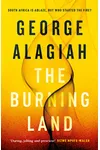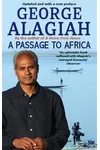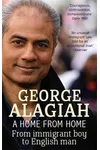Picture a journalist who brought the world’s toughest stories to your screen with warmth and wisdom—meet George Alagiah! Born in Sri Lanka, raised in Ghana, and a beloved figure in UK broadcasting, Alagiah’s journey from immigrant to BBC News icon is as inspiring as his fearless reporting. His books and broadcasts weave tales of conflict, culture, and human resilience, making him a voice for the voiceless.
With a career spanning decades, Alagiah covered everything from war zones to tsunamis, earning awards and hearts along the way. His writing, both fiction and non-fiction, dives deep into immigration, identity, and political responsibility, reflecting his global perspective. Let’s explore the life and legacy of this remarkable storyteller!
The Making of George Alagiah
George Maxwell Alagiah was born on November 22, 1955, in Colombo, Sri Lanka, to Tamil parents Donald and Therese. At six, his family fled ethnic violence, relocating to Ghana, where young George soaked up the optimism of a newly independent Africa. By 11, he landed in England, facing casual racism at St John’s College in Portsmouth but finding refuge in education. At Durham University, he studied politics, edited the student newspaper, and met his future wife, Frances Robathan. Inspired by the Watergate scandal, Alagiah dreamed of journalism, kicking off his career at South Magazine before joining the BBC in 1989 as a foreign correspondent.
George Alagiah’s Unforgettable Stories
Alagiah’s reporting from conflict zones like Rwanda, Somalia, and Kosovo defined his early career, earning him accolades like the 1994 Amnesty International UK Media Award for his Burundi coverage and a 2000 BAFTA for Kosovo reporting. His calm, empathetic delivery made complex global issues accessible, whether he was anchoring BBC News at Six or presenting World News Today. His non-fiction books, A Passage to Africa (2001) and A Home from Home (2006), blend memoir and journalism, exploring his immigrant experience and Britain’s multicultural evolution with insight and heart.
In 2019, Alagiah ventured into fiction with The Burning Land, a gripping political thriller set in post-apartheid South Africa. Shortlisted for a Society of Authors award, it tackles corruption, environmental activism, and patriotism, reflecting his knack for weaving real-world issues into compelling narratives. His writing style—vivid, reflective, and grounded in personal experience—mirrors his broadcasting, making readers feel like they’re hearing a trusted friend unpack the world’s chaos.
Whether on screen or page, Alagiah’s work bridges cultures, giving voice to marginalized communities. His ability to humanize distant conflicts and connect them to universal themes of identity and justice sets him apart as a storyteller for our times.
Why George Alagiah Matters
George Alagiah’s impact transcends journalism. As a Tamil immigrant who became a trusted face on British TV, he challenged stereotypes and showed the power of diverse voices in media. His fearless reporting from war zones brought global crises into living rooms, while his books sparked conversations about immigration and cultural identity. Despite battling bowel cancer from 2014 until his passing in 2023, Alagiah’s resilience shone through, inspiring millions with his grace and dedication. His legacy lives on in the journalists he mentored and the readers he moved to see the world through a more compassionate lens.
- Born: November 22, 1955, Colombo, Sri Lanka
- Key Works: A Passage to Africa, A Home from Home, The Burning Land
- Awards: OBE (2008), Amnesty International UK Media Award (1994), BAFTA (2000)
- Died: July 24, 2023
Ready to dive into George Alagiah’s world? Grab A Passage to Africa for a heartfelt journey through his eyes or tune into his BBC archives for storytelling that hits home!


